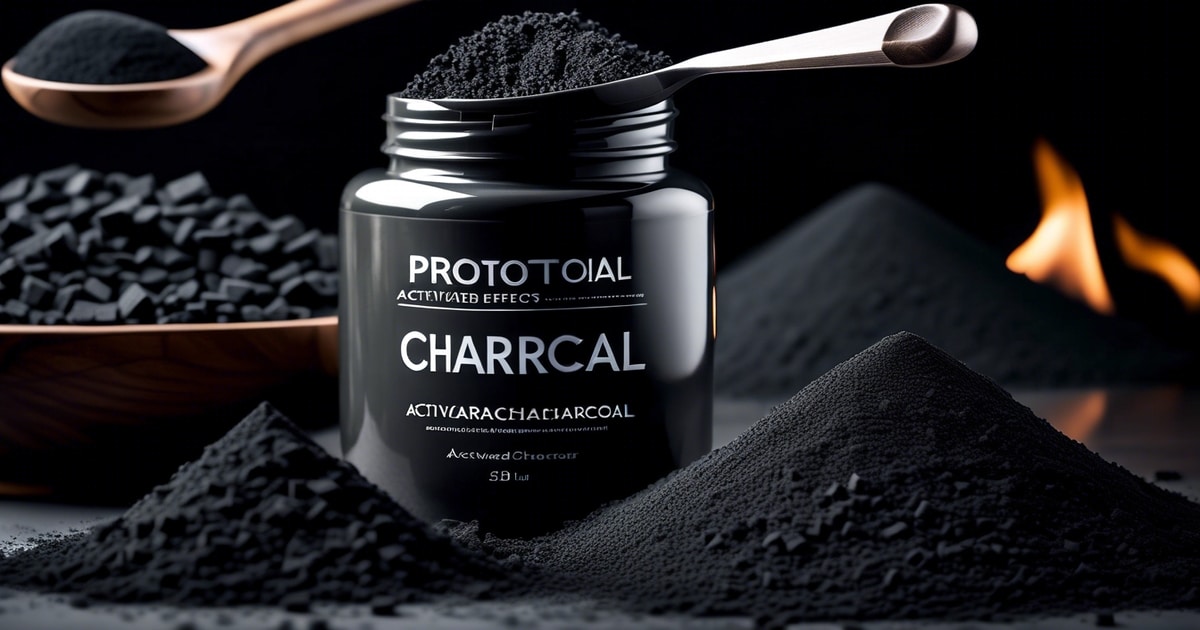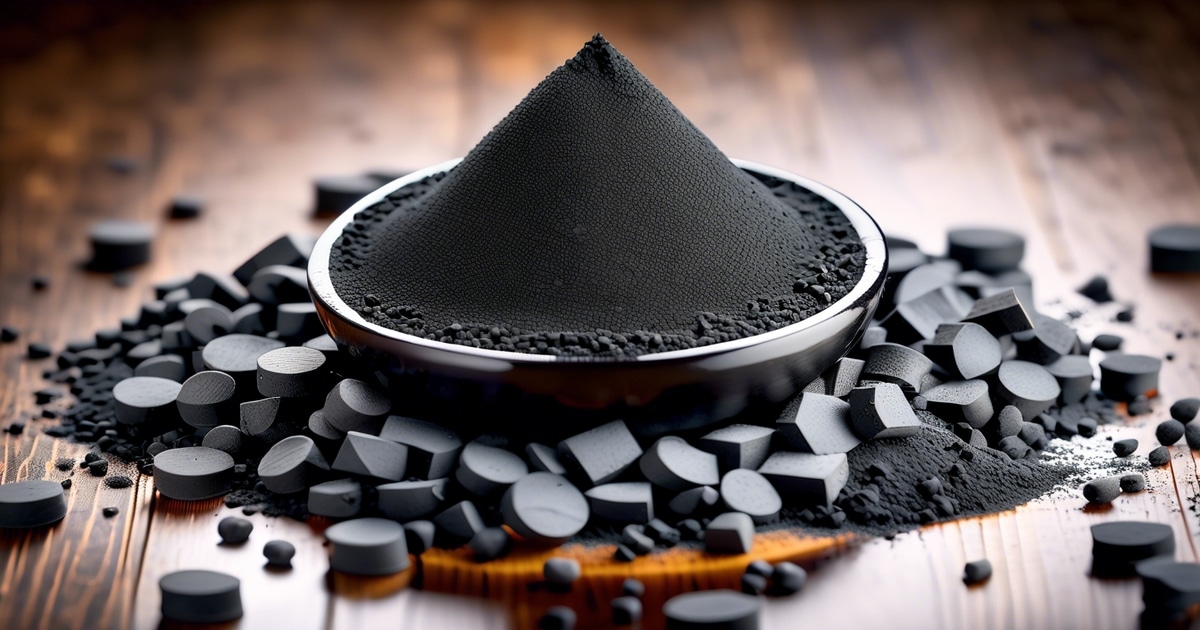Key Takeaways
-
Be Mindful of Side Effects: Activated charcoal has various benefits, but it’s crucial to be aware of potential side effects and associated risks.
-
Consult a Healthcare Professional: Before using activated charcoal for any purpose, especially internally, consult a healthcare provider for medical advice to understand its safety and appropriateness for patients with intestinal gas.
-
Monitor Kidney Function: Regular monitoring of kidney function is essential when using activated charcoal, as it can impact kidney health, especially in individuals with existing kidney issues.
-
Consider Alternatives: If patients experience adverse reactions or are concerned about the side effects of activated charcoal or ingested toxins, explore alternative remedies or treatments in consultation with a healthcare professional.
-
Educate Yourself: Understand the safety guidelines, contraindications, and potential interactions of activated charcoal with medications to ensure proper and safe use.
-
Prioritize Overall Health: While activated charcoal may offer benefits, prioritize a holistic approach to health by considering diet, lifestyle, and other factors contributing to well-being.
Did you know that while activated charcoal is lauded for its detoxifying properties, it may also have unexpected side effects like ingested toxins? From potential digestive issues to interference with medication effectiveness, the dark magic of coal isn’t all sparkles and rainbows. Dive into this blog post to uncover the lesser-known downsides of activated charcoal usage. Whether you’re a wellness enthusiast or just curious about what lurks beneath the surface of health trends, buckle up for a revealing exploration.
Understanding Activated Charcoal and Its Mechanism
Potential Side Effects
Activated charcoal is generally safe for most patients but can have some side effects. Some common side effects include constipation and black stools. These occur because activated charcoal can bind to medications and nutrients in the digestive system, affecting their absorption.
Activated charcoal may also cause vomiting or diarrhea in some individuals. While these side effects are usually mild and temporary, it’s essential to consult a healthcare professional if they persist or worsen. Rarely allergic reactions like rash or itching can occur after ingesting activated charcoal.
Interactions with Medications
One crucial aspect is that activated charcoal can interact with certain medications by reducing their effectiveness. It’s important to take activated charcoal at least two hours before or after taking any prescription medications to prevent interference with drug absorption.
-
Pros:
-
Effective at adsorbing toxins.
-
Generally safe for most people.
-
-
Cons:
-
May cause constipation and black stools.
-
Can interact with medications if not taken properly.
-
Benefits and Potential Uses of Activated Charcoal

Alleviating Indigestion and Bloating
Activated charcoal alleviates symptoms like indigestion, bloating, and toxins. It can help absorb excess gas in the digestive system, reducing discomfort. Activated charcoal might offer relief for individuals struggling with occasional stomach upset after a heavy meal.
-
Pros:
-
Effective in reducing bloating
-
Provides quick relief from indigestion
-
Emergency Treatment for Poisoning
In emergencies involving certain types of poisoning, activated charcoal is often used as a treatment method. By binding to toxins in the stomach, charcoal prevents their absorption into the bloodstream, limiting their harmful effects on the body. This makes it a valuable tool in poison control centers for toxin management.
-
Cons:
-
Not effective for all types of poisoning
-
Should be administered under medical supervision
-
Side Effects and Risks of Activated Charcoal
Common Side Effects
Activated charcoal can cause side effects such as black stools, vomiting, constipation, and abstract. These are typically harmless reactions that occur as the body processes the charcoal. The dark color of stools is common due to activated charcoal’s ability to bind to toxins in the digestive tract.
Consuming activated charcoal may lead to gastrointestinal issues like constipation or diarrhea. To help prevent these side effects, drinking plenty of water when taking activated charcoal supplements is essential.
Interference with Medications and Nutrients
One crucial risk associated with activated charcoal is its potential interference with medication absorption in the body. Activated charcoal can bind to medications in the digestive system, reducing their effectiveness. This interaction could be dangerous for individuals relying on specific medications for health conditions.
Moreover, activated charcoal might also interfere with nutrient absorption in the body. Long-term use or excessive consumption could result in deficiencies of essential nutrients like vitamins and minerals.
Safety, Contraindications, and Emergency Poison Treatment

Medical Supervision
Activated charcoal is crucial in cases of acute poisoning but should only be used under medical supervision. It is not a one-size-fits-all solution and may not work for all types of poisoning, like corrosive substances or alcohol.
In emergency situations where toxins have been ingested, activated charcoal can be given orally or through a tube inserted into the stomach. This method helps prevent the body from absorbing the toxic substance by binding to it before it gets absorbed into the bloodstream.
-
Pros:
-
Effective in treating certain types of poisonings.
-
Can prevent absorption of toxins when administered promptly under medical guidance.
-
-
Cons:
-
Not effective for all types of poisoning.
-
Requires medical supervision to ensure proper administration and effectiveness.
-
Poison Control Measures
Contact your local poison control center immediately if you suspect someone has ingested a toxic substance. Only administer activated charcoal with proper guidance, as it may worsen certain conditions or interact with medications.
-
Contact your local poison control center right away if you suspect poisoning.
-
Follow their instructions carefully before administering any treatment options.
-
Seek immediate medical attention even after using activated charcoal as an initial treatment.
Impact on Kidney Function and Cholesterol Levels
Kidney Function
Activated charcoal, when used in high doses or for extended periods, may impact kidney function. Limited evidence suggests prolonged or excessive use could harm the kidneys over time. Individuals with kidney issues should be cautious when considering the use of activated charcoal for various purposes.
Studies are ongoing to determine the exact effects of activated charcoal on kidney function, but caution is advised due to emerging concerns about its long-term usage. It’s essential to consult healthcare professionals before using activated charcoal if you have existing kidney problems.
Cholesterol Levels
Some studies suggest that activated charcoal might help in lowering LDL cholesterol levels. However, further research is necessary to confirm this effect conclusively. While there are possible benefits related to cholesterol management, more randomized controlled trials are needed to establish the effectiveness of activated charcoal in reducing cholesterol levels.
-
Pros:
-
Potential reduction in LDL cholesterol levels.
-
-
Cons:
-
Limited evidence available.
-
More research required for confirmation.
-
Managing Intestinal Gas and Oral Health Benefits
Reduction of Intestinal Gas
Activated charcoal can help decrease intestinal gas by trapping excess gas-producing substances in the GI tract. It adsorbs these substances, reducing bloating and discomfort. However, consulting a healthcare provider before using activated charcoal is essential.
-
Pros:
-
Reduces bloating and discomfort.
-
Adsorbs excess gas-producing substances.
-
-
Cons:
-
May interfere with medication absorption.
-
Oral Health Benefits
In oral care products like toothpaste and mouthwash, activated charcoal offers potential benefits for oral health. Its adsorptive properties aid in removing stains from teeth and toxins from the mouth, contributing to a cleaner oral environment.
-
Pros:
-
Removes stains from teeth.
-
Helps eliminate toxins from the mouth.
-
-
Cons:
-
Excessive use may damage tooth enamel.
-
Skincare, Deodorant, and Addressing Skin Infections
Purifying the Skin
Activated charcoal is a key ingredient in many skincare products as it can extract impurities from the skin. By drawing out dirt, oil, and other pollutants clogging pores, activated charcoal helps purify the skin deeply. This makes it an excellent choice for seeking clearer and healthier skin.
-
Draws out impurities
-
Cleanses deeply
Natural Deodorant Alternative
In addition to its skincare benefits, activated charcoal can be used as a natural deodorant. Its absorbent properties make it effective at soaking up odor-causing bacteria that lead to unpleasant body odors. By neutralizing these bacteria effectively, activated charcoal offers a chemical-free way to stay fresh throughout the day.
-
Absorbs odor-causing bacteria
-
Neutralizes body odors naturally
Antimicrobial Properties for Skin Infections
Studies have indicated that activated charcoal possesses antimicrobial properties that could aid in addressing certain skin infections. These properties may help combat harmful microbes on the skin, promoting faster healing of infections like acne or eczema. While more research is needed in this area, initial findings suggest promising results for using activated charcoal in treating such conditions.
-
May combat harmful microbes
-
Promotes faster healing of infections
Special Precautions, Warnings, and Interactions with Medications
Interference with Medication Absorption
Activated charcoal can affect how medications are absorbed in the body. It is essential not to take activated charcoal at the same time as other medications to prevent interference with their effectiveness. For instance, taking activated charcoal simultaneously can reduce the antibiotic’s absorption if you are on antibiotics for an infection.
Taking activated charcoal away from other drugs or supplements for a few hours can help avoid this issue. By spacing out the intake of these substances, you allow each one to be properly absorbed without affecting one another negatively.
Avoidance in Certain Health Conditions
Individuals with gastrointestinal blockages or conditions should steer clear of using activated charcoal due to potential risks. If someone has an intestinal obstruction or severe digestive issues like inflammatory bowel disease (IBD), consuming activated charcoal may worsen their condition rather than provide benefits.
Pregnant or breastfeeding women need to seek medical advice before using activated charcoal products. Consulting healthcare providers ensures that any potential risks associated with its use during pregnancy or nursing are addressed appropriately. The safety of using activated charcoal in such sensitive periods requires careful consideration and expert guidance.
Closing Thoughts
You’ve delved into activated charcoal, uncovering its potential benefits, risks, and applications. Remember, while it can be a powerful tool for detoxification and skincare, it’s crucial to use it cautiously due to possible side effects and medication interactions. Always consult a healthcare professional before incorporating it into your routine.
As you navigate the realm of wellness products, stay informed and make choices that align with your health goals. Be proactive in understanding how substances like activated charcoal can impact your body. Your well-being is paramount, so empower yourself with knowledge and make informed decisions about what you put in and on your body.
Frequently Asked Questions
Does activated charcoal have any side effects?
Activated charcoal can cause side effects like constipation or black stools. It may also interfere with the absorption of certain medications. Always consult a healthcare professional before using it.
Can activated charcoal impact kidney function?
Limited evidence suggests that activated charcoal might affect kidney function if used excessively. People with kidney issues should seek medical advice before using it regularly.
Is activated charcoal safe for oral health benefits?
Using activated charcoal occasionally for teeth whitening might be safe, but daily use could damage tooth enamel. Consult a dentist to ensure its suitability and avoid potential risks.
Are there any special precautions when using activated charcoal with medications?
Activated charcoal can reduce the effectiveness of some medications if taken simultaneously. To prevent interactions, maintain a gap between taking medications and using activated charcoal supplements.
How does activated charcoal help manage intestinal gas?
Activated charcoal may adsorb gas in the digestive system, potentially reducing bloating and discomfort. However, its efficacy varies among individuals, so please consult a healthcare provider to see if it’s appropriate.

